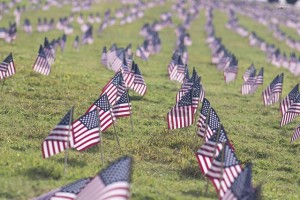Nov
05

Posted by Carolyn Martin on November 5th, 2015
Posted in: Health Literacy, News From NNLM PNR
 Veterans Day is approaching and is a special time to pay tribute to veterans of all wars. These men and women have sacrificed much for the freedoms we all enjoy and for which we are thankful. However, the results of war are often devastating for veterans, their families and eventually we all feel the effects. Many veterans experience physical and psychological trauma which can have an enormous effect on those around them. Many are unemployed, economically depressed, experience added family problems, and may lead to suicide in some cases.
Veterans Day is approaching and is a special time to pay tribute to veterans of all wars. These men and women have sacrificed much for the freedoms we all enjoy and for which we are thankful. However, the results of war are often devastating for veterans, their families and eventually we all feel the effects. Many veterans experience physical and psychological trauma which can have an enormous effect on those around them. Many are unemployed, economically depressed, experience added family problems, and may lead to suicide in some cases.
Before they were even granted U.S. citizenship, thousands of Native Americans volunteered and served in the first World War and over 40,000 served in World War II despite their own lack of freedom here in their own country. For many Native Americans, becoming part of the military was an opportunity to prove patriotism, provide employment, to see the world and as a rite of passage. Despite the inner conflict of assisting an institution that marginalized, isolated and fought against them, many Native Americans wanted to assist in protecting their country. In fact Native Americans have the largest per capita enlistment of any ethnic or racial group.
The trauma of war on Native Americans and many rural veterans can be compounded by a number of factors including lack of transportation and other transportation factors, lack of services, unemployment, cultural barriers, awareness, and lower incomes. Many have found help and support though traditional healing and opportunities provided such as the sharing of stories.
Several films have been produced that record the stories of Native American veterans allowing others to hear their voices. Here are previews about three such films.
The National Museum of the American Indian seeks to provide a forum for tribes to tell their veteran stories in the Native American Veterans’ Storytelling Project. They have developed a model for this project for others to follow in hopes of preserving these stories for future generations. To learn more about this project and seek participation watch this informational video.
A number of websites and organizations offer information and services and support for Native Americans veterans.
MedlinePlus is a great resource for health information for veterans and the general public on a variety of health conditions, drug information, and wellness tools. The Native American Health topic page focuses specifically on Native American health as does the the National Library of Medicine resource, American Indian Health.
Though not focused exclusively on Native American veterans, the National Network of Libraries of Medicine offers a consumer health class, Combating Information Fatigue: Health Information Resources for Veterans. The PNR offered this class earlier this year but you can sign up for it at the South Eastern Atlantic Region (SEA) http://nnlm.gov/ntc/classes/class_details.html?class_id=327 . The online Moodle class begins November 30th and runs through December 14th . This class offers resources and ways to help with the health information needs specific and sensitive to veterans and their families such as post-traumatic stress disorder, support groups, family issues, directories and more so that your library can better serve the veterans in your communities.
Open enrollment in the Health Insurance Marketplace has begun and runs through January 31, 2016. Healthcare.gov offers information about enrollment specifically for Native Americans and veterans as does the Veterans Affair Administration.
We thank all our veterans this Veterans’ Day and with November also being Native American Heritage Month we want to remember and thank our Native veterans!